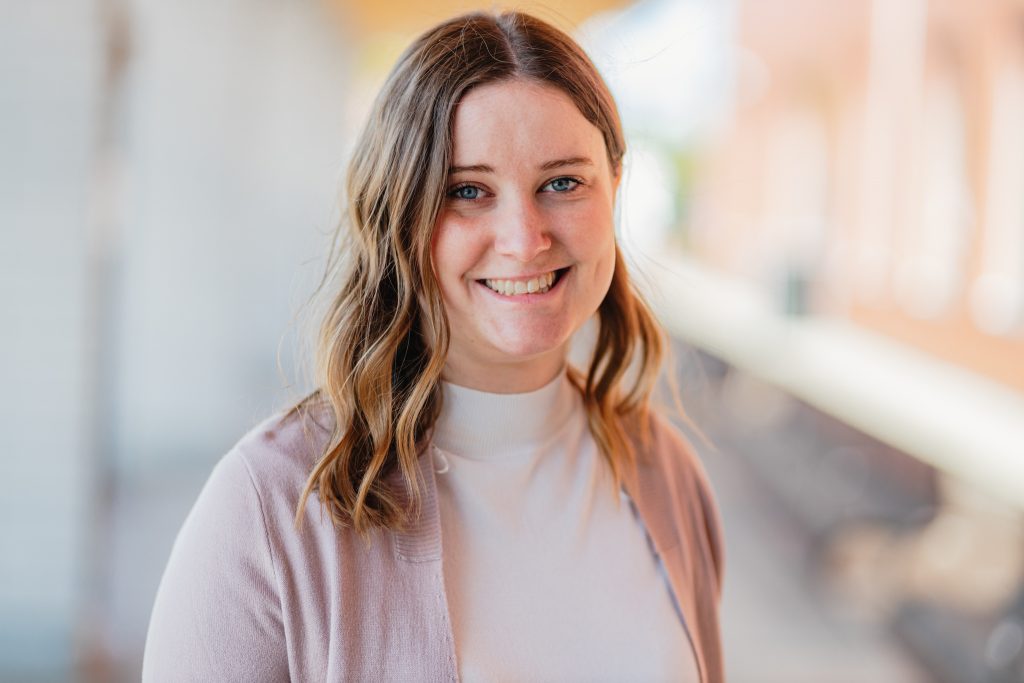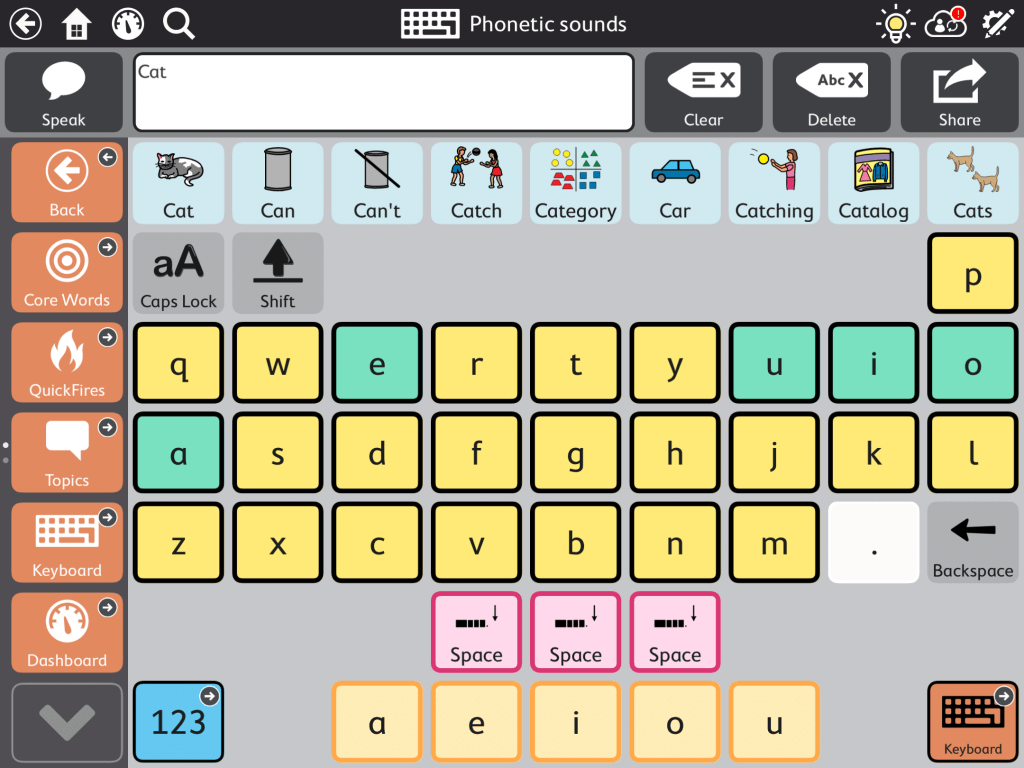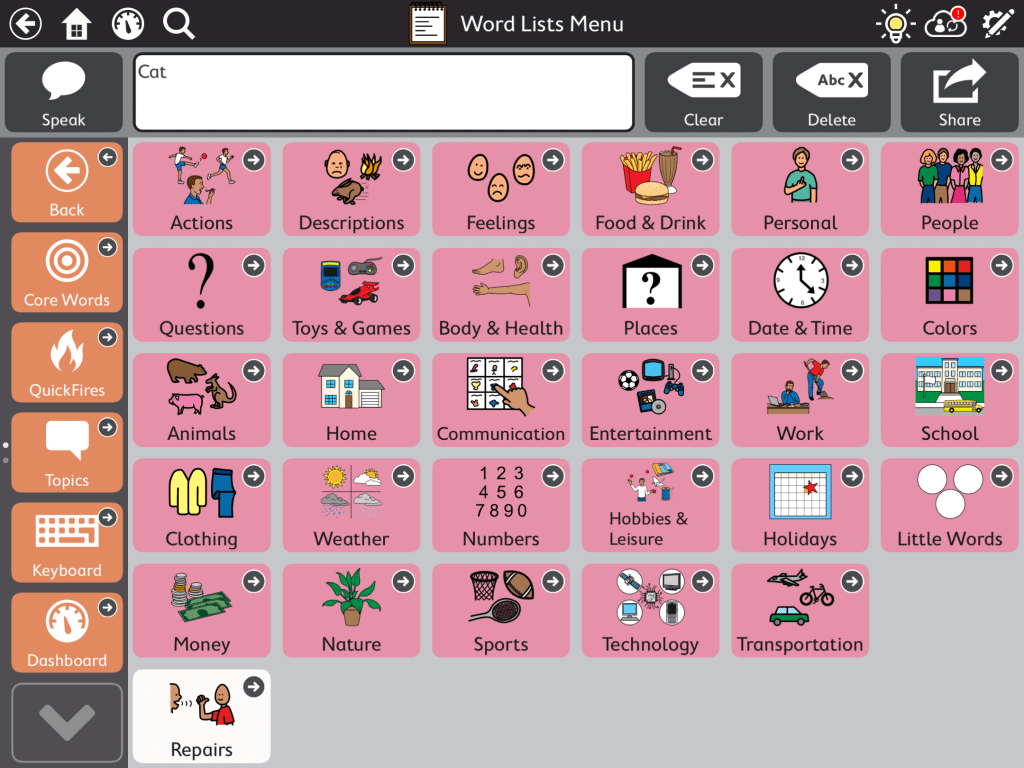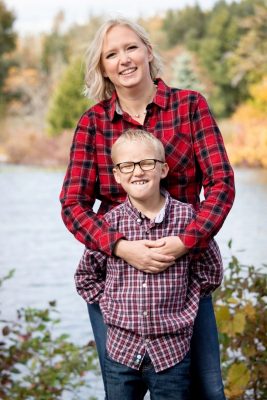
Technology Access Clinic helps 9-year-old communicate with prescription iPad
When 9-year-old Aidan Walker has trouble pronouncing a word, a special program on his iPad is there to help.
Aidan has childhood apraxia of speech, a motor speech disorder which makes it difficult for his brain to coordinate speech muscle movements and make accurate sounds. While Aidan is practicing his pronunciation with speech therapy, he needed a way to communicate effectively in the meantime.
Strategies to clarify speech
Emily Buddo, a speech language pathologist at Ron Joyce Children’s Health Centre (RJCHC), works with Aidan in the Technology Access Clinic.
The clinic is an “augmentative and alternative communication clinic.” It helps individuals who are not able to speak or write in a way that meets their communications needs, by prescribing the most appropriate communications system. In Aidan’s case, this involves an iPad and software purchased, in part, through the Assistive Devices Program which provides financial assistance to Ontario residents.
“Aidan has a strong understanding of words,” says Buddo. “He came to us to assess whether any augmentative and alternative communication strategies would be helpful to clarify his speech in moments of communication breakdowns.”
“Communication breakdowns”
Children with apraxia of speech have “communication breakdowns,” which means they say something, but people can’t understand them.
“Other children may say words consistently incorrectly like ‘wook’ instead of ‘look’ so parents can get to know the words they are trying to say,” says Buddo. “But children with apraxia of speech are inconsistent in the way they produce words, which makes understanding them very difficult.”
The technology prescribed to Aidan categorizes words into folders so he can find them easily. There are folders for categories like animals and foods, and customized folders for things like his favourite places, people he knows, and TV shows he enjoys.
If Aidan is struggling with a word, he can go into the folder to find it or he can begin to type it in and use the keyboard’s word prediction functionality. It provides suggestions with symbols for what he may be trying to spell. It also makes the letter sounds as he types which helps reinforce early literacy development. Aidan’s family is also able to add words into the program.

The phonetic keyboard has a word prediction functionality that uses symbols to help Aidan find the word is he looking for.
Telling stories
Aidan’s mom Rebecca Walker says Aidan has made improvements.
“Over the years, Aidan has gotten better with his speech. He has gone up four reading levels at school and enjoys reading at bedtime,” she says.
“The staff at Ron Joyce have been nothing but wonderful. They are helpful, kind, and have helped us understand what we as parents need to do to help Aidan. They make it fun for Aidan to learn how to use his iPad.”
On St. Patrick’s Day, Aidan wanted to say the word, “leprechaun.” After Easter, he was able to share what he collected in his basket.
Buddo says she enjoys learning about Aidan’s personality while she helps him at appointments.
“He’s been telling me a lot about his friends. He can go into his people folder and find the names he is looking for and talk about playing with them after school,” she says. “It’s the best job in the world.”

Aidan’s Word Lists Menu has different categories to choose from. He can go into his People folder to find the names of his friends.
Support is available
Walker says their family’s journey has been a mixture of stress, education and emotions. Aidan still struggles with his fine motor skills, his speech, and the ability to focus on certain tasks, due to attention deficit hyperactivity disorder. But he is getting support through ongoing virtual and in-person treatment sessions at the Technology Access Clinic, speech therapy visits, occupational therapy, and support at school.
Walker wants to encourage other parents who think their child is struggling to seek out resources immediately.
“Don’t be afraid to fight for what your children need.”
Childhood apraxia of speech affects less than 1% of children. May 14 is Apraxia Awareness Day – part of Speech and Hearing Awareness Month in May!

